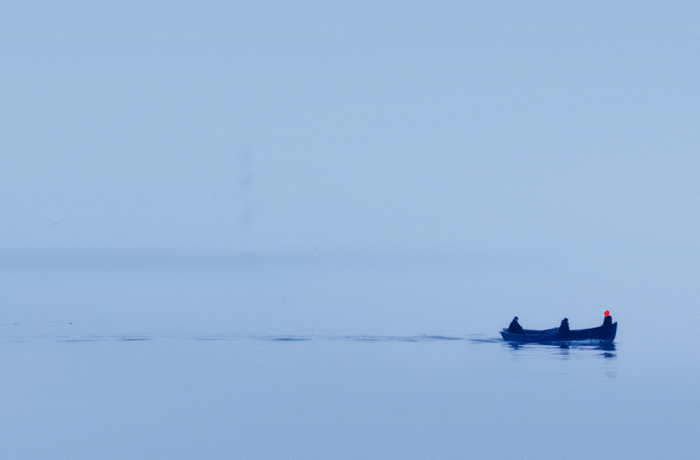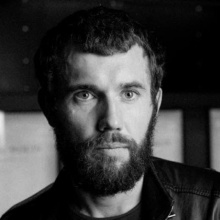
A man repairs his fishing net and goes out to the bridge. Two trams run into each other – nobody is hurt and cables are fixed the same day. A small concert is given for factory workers and the sincere performance of a violinist makes them cry. Bombs fall into the sea, no one notices. Everyday life is defined by bomb threats in Mariupol, a city in the Ukraine, situated to the east of the Crimea and once populated by Greeks. It is a visually powerful homage to a city in crisis, dedicated to its poets and shoemakers.

Mantas Kvedaravičius (1976-2022) was a Lithuanian-born filmmaker with a degree in social anthropology from Cambridge University. His first documentary film, Barzakh was selected in numerous festivals and won several awards, including the Amnesty International Prize and the Ecumenical Jury Prize at the Berlinale in 2011. His following two films, Mariupolis (2016) and Parthenon (2019) were selected at the Berlinale and the Venice International Critics' Week, respectively. Mantas Kvedaravičius was captured and killed by Russian Forces in the end of March, 2022 in Mariupol while documenting Russia's invasion of Ukrainian territory.
Barzakh (2011), Mariupolis (2016), Parthenon (Parthenonas, 2019)